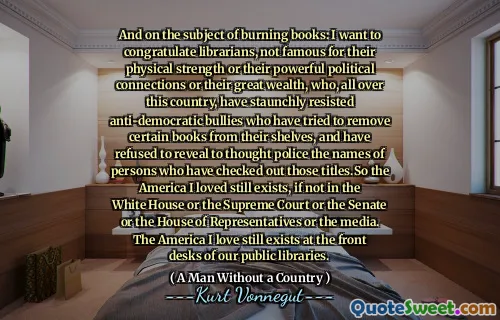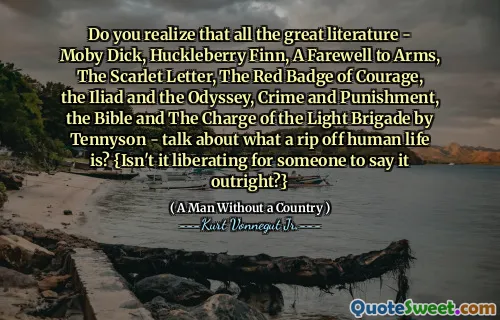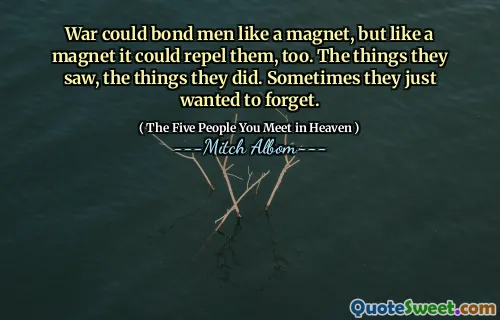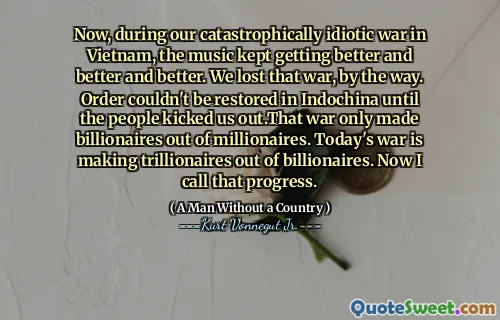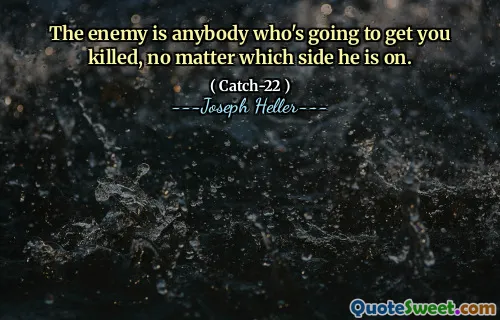
War is now a form of TV entertainment
Kurt Vonnegut Jr. in his book "A Man Without a Country" raises a critical concern about the desensitization of society towards war. He argues that war has become so sensationalized and commercialized that it resembles a form of entertainment, akin to reality television. This phenomenon indicates a troubling shift in how the public perceives conflict, often viewing it through a lens of spectacle rather than understanding its real implications and consequences.
Vonnegut's reflections suggest that as wars are broadcasted and dramatized, audiences may become detached from the harsh realities that soldiers and civilians endure. Instead of recognizing the gravity and tragedy of war, people might begin to consume it passively, much like they would a television show. This detachment raises significant ethical questions about how media representation shapes public perception and the responsibility of creators in portraying such serious topics.
